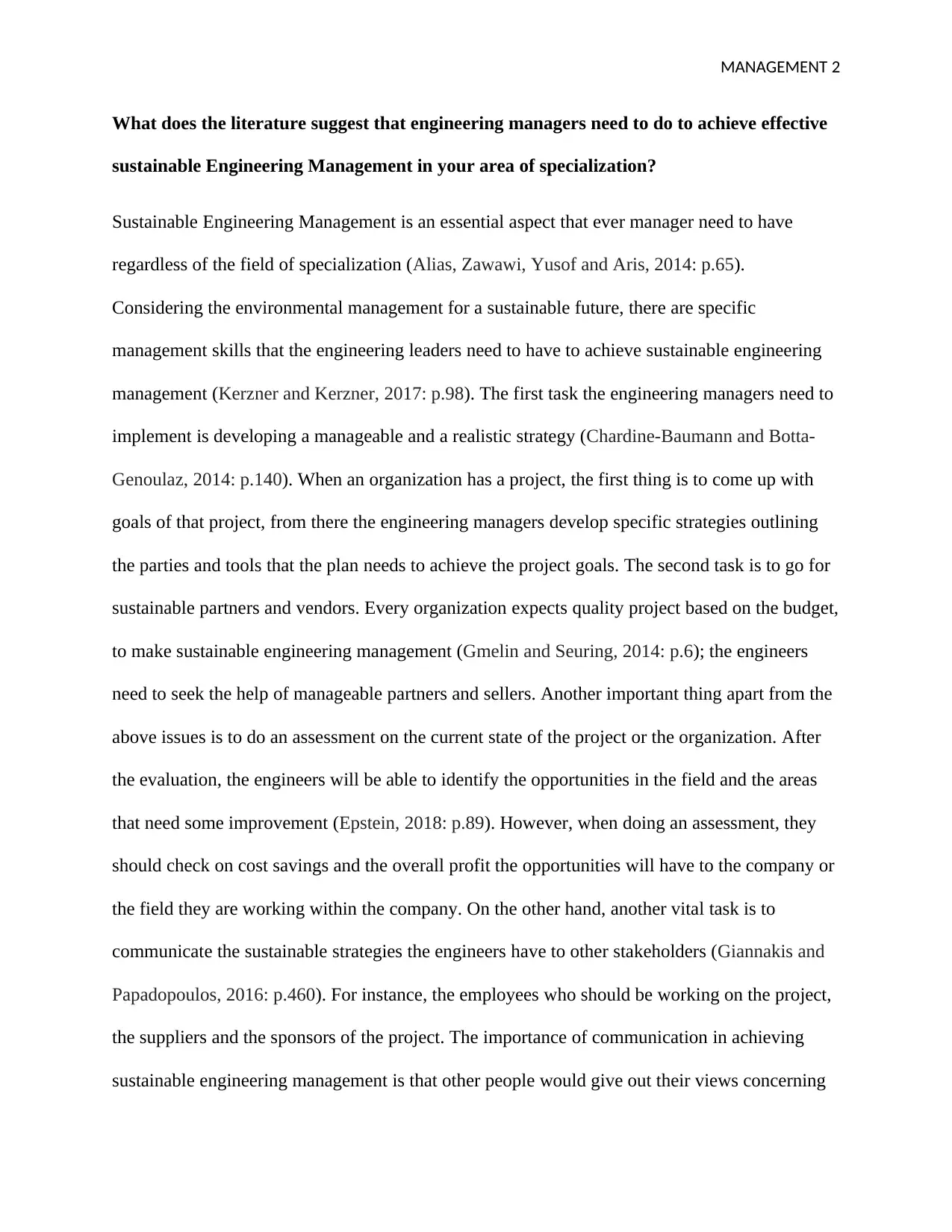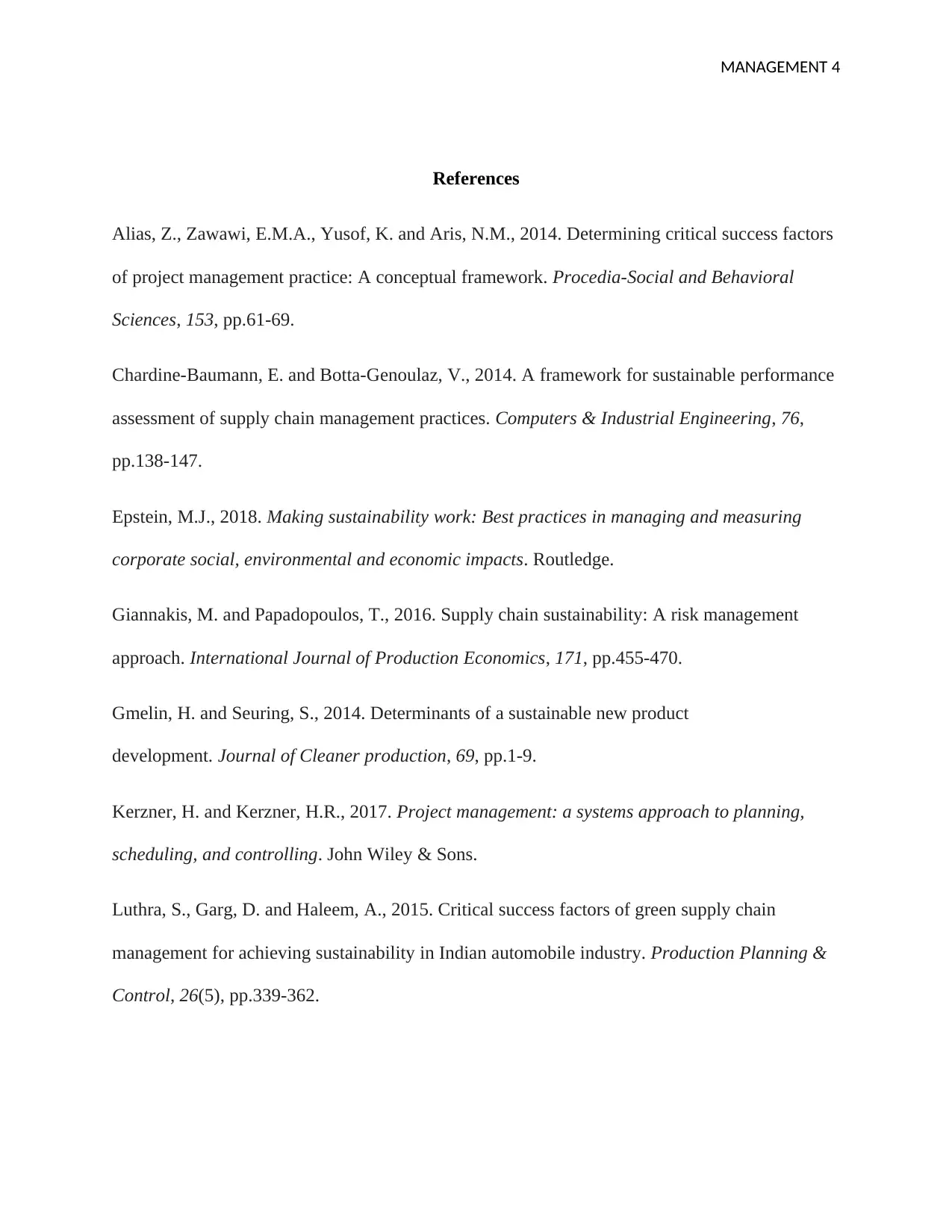MANAGEMENT 1: Effective Sustainable Engineering Management Report
VerifiedAdded on 2023/05/30
|4
|658
|347
Report
AI Summary
This report delves into the critical aspects of sustainable engineering management, emphasizing the essential skills and strategies engineering managers need to adopt. It highlights the importance of developing manageable and realistic strategies, seeking sustainable partners and vendors, conducting thorough assessments, and effectively communicating sustainable strategies to stakeholders. The report emphasizes the need for engineers to consider environmental management, assess project opportunities, and foster open communication to enhance management skills and achieve project and company goals. The literature suggests that effective sustainable engineering management requires a holistic approach, integrating environmental, social, and economic considerations into every stage of the project lifecycle. The report provides a framework for engineering leaders to implement sustainable practices, contributing to long-term organizational success and environmental responsibility.
1 out of 4






![[object Object]](/_next/static/media/star-bottom.7253800d.svg)